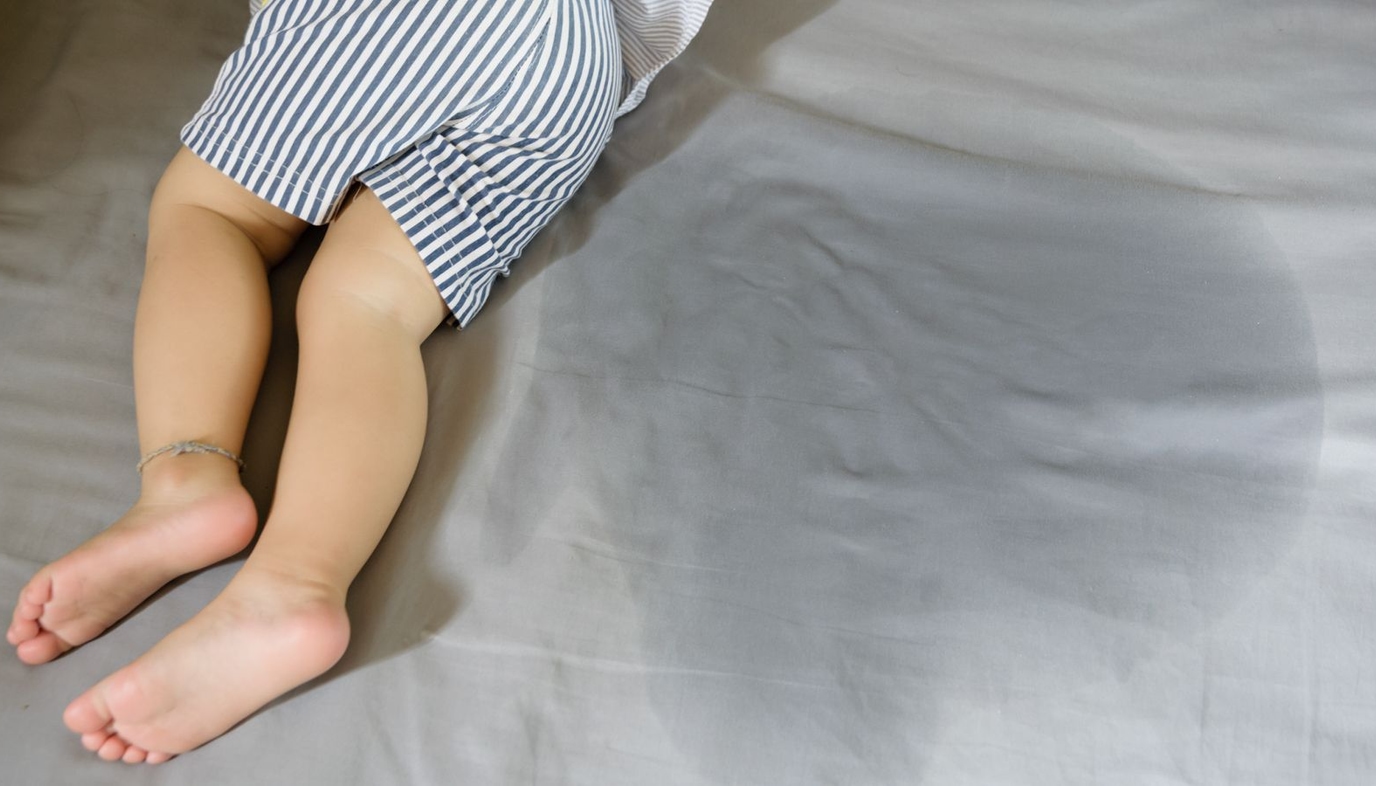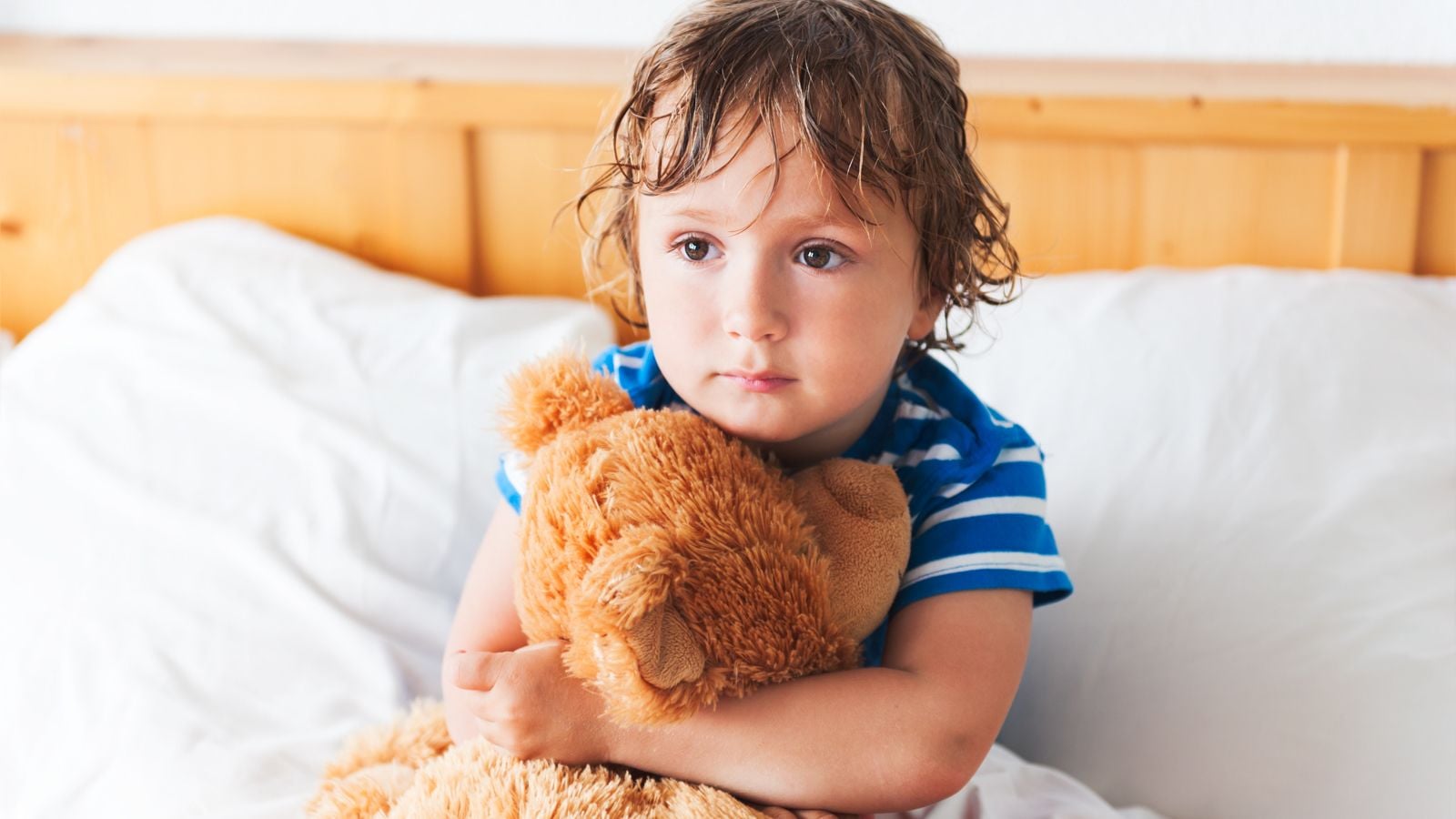
Wetting the bed is an embarrassing event for any kid who has graduated out of diapers. It often leads to feelings of shame and can make kids fearful of being social or participating in activities like sleepovers. Both boys and girls can experience bed-wetting issues, and the problem can last for years. The fact is that millions of kids suffer from bed-wetting problems. Getting to the bottom of why your child is still wetting the bed will help you and your child manage this embarrassing problem so you both can move on with life.
Experts say that bed-wetting problems may be linked to genetics, meaning your child may have inherited delayed bladder control from you or your partner. No matter what the reason, your loving support is what may make all the difference in the end.
Misconceptions and Mistakes
Some parents mistakenly associate bed-wetting with forgetting to get up and go potty before bed, but experts say the two aren't associated. In fact, a common mistake parents make is waking their kids up to use the bathroom in the middle of the night to avoid bed-wetting problems. Restricting liquids before bed is another common mistake parents make, as is punishing a child who wets the bed.
Bed-wetting is completely beyond your child's control, say psychologists, and punishing them is hurtful and harmful to their emotional well-being and development. Solving the problem by using bigger diapers to fit an older child or even ignoring the issue are also counter-productive.

Causes of Bed-Wetting
Constipation: Pressure in the bowel can put increased pressure on the bladder. So, when your child needs to make a bowel movement and doesn't, the bladder may suffer the consequences.
Deep Sleep: Although waking your child to go to the bathroom isn't a good idea, sleep may be an issue. Very deep sleepers may miss their brain's signal that their bladder needs to be emptied.
Delayed maturation or a small bladder: Sometimes it just takes longer for kids to develop the brain-bladder signal to let them know it's time to go. Your child may also have a smaller bladder while growing, which needs to be emptied sooner or more often.
How to Help
Although restricting fluid intake is not the solution, you can encourage your child to drink more during the daytime, rather than at night. Children often get thirsty at night because their bodies didn't get enough water during the day. Offer fluids during the day, even if they just want a sip. Don't offer drinks with sugar or caffeine, as these are stimulants that will make the problem worse.
Make sure your child uses the potty "one last time" before tucking them into bed for the night. When your child has a dry night, try to offer praise and a reward. Be supportive and always loving, even on nights when the bed is wet. Never yell or humiliate your child, even if you're frustrated. All you'll do is cause them to live with the shame that they don't deserve.

When to Call the Doctor
Most kids wet the bed at least once, especially during the potty training years, however, as they age, it becomes less common. "Nocturnal enuresis" is the medial term for wetting the bed and your child's pediatrician needs to know what you're dealing with if:
Your child starts wetting the bed after never having wet it before or after 6 months of dry nights
Bed-wetting is still a problem after your child is 7 years old
Wetting becomes an issue during the day
There are changes in your child's health, such as painful urination, swollen ankles, or frequent urination
You notice your child isn't behaving normally or has new fears or mood swings in addition to bed-wetting
